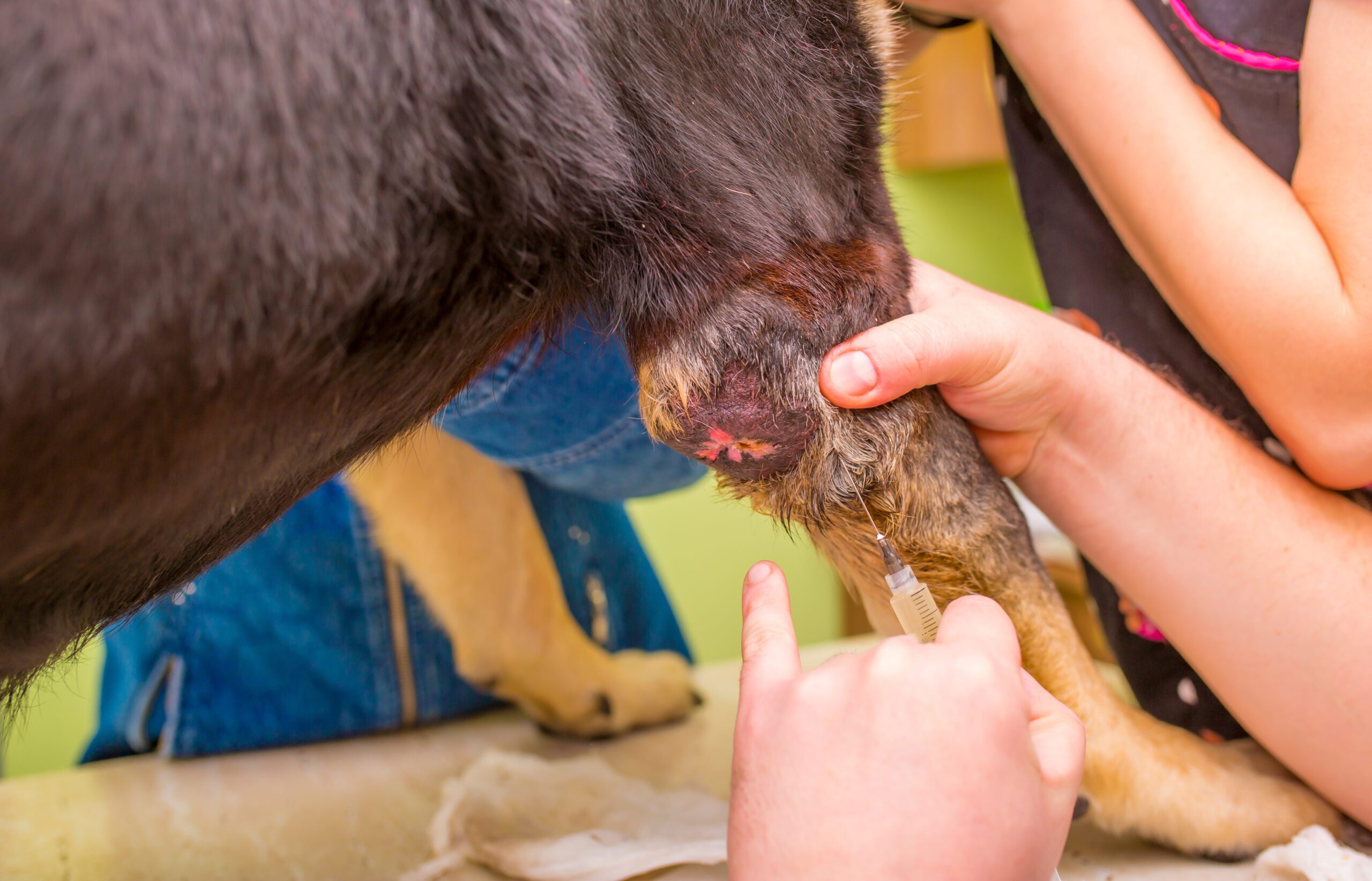
Understanding the Risks and Taking Action
As pet parents, we all want our four-legged friends to live long, happy, and healthy lives. But unfortunately, cancer is a disease that can affect pets just like it does humans. That’s why it’s so important to raise awareness and take the necessary steps to detect, treat, and prevent it.
In honor of Pet Cancer Awareness Month, we’ve created a comprehensive guide to help pet owners learn a little more about this disease and how to care for their pets.
Pet Cancer Symptoms
Pets of all ages, sizes, and breeds can develop cancer, and the risk often increases with age. According to the American Veterinary Medical Association (AVMA), cancer is the leading cause of death in 47% of dogs and 32% of cats. Approximately 1 in 4 dogs will develop neoplasia, which is an abnormal growth of tissue. Some of the most common types of cancer in pets include osteosarcoma, lymphoma, mammary gland tumors, and mast cell tumors.
Knowing the pet cancer symptoms and signs is crucial to early detection and successful treatment. Some of the most common pet cancer symptoms include loss of appetite, vomiting, unexplained weight loss, diarrhea, lameness, difficulty breathing, changes in behavior, and bumps or lumps that change or grow in size, shape, or texture.
If you suspect your pet’s experiencing any of these symptoms, it’s essential to seek veterinary care as soon as possible.
Pet Cancer Prevention
While we can’t always prevent cancer, there are steps we can take to help reduce the risk, such as spaying and neutering, a healthy and balanced diet, and maintaining a healthy weight. Establishing these simple lifestyle habits can help with pet cancer prevention while also promoting your pet’s overall health.
Additionally, environmental factors like secondhand smoke or exposure to toxins can increase risk, so it’s essential that you provide your pet with a safe and healthy home.
Pet Cancer Treatment Options
Pet cancer treatment options often include chemotherapy, radiation therapy, immunotherapy, surgery, and palliative care. Because each option has its own benefits and potential side effects, a veterinarian will work closely with pet parents to develop a plan customized to their pet’s specific needs. These plans are typically based on age, health status, and type of cancer.
When going through treatment, it’s important to follow the veterinarian’s recommendations closely and monitor the pet’s response.
Early Detection
Early detection is critical to pet cancer diagnosis and successful treatment and management. During a screening, a veterinarian will perform a physical exam. During this exam, they may recommend diagnostic tests such as X-rays, ultrasounds, blood work, and biopsies. It’s critical to schedule regular checkups and follow up with the veterinarian if any changes or symptoms are noticed.
Pet Cancer Research
Just as it is for humans, pet cancer research is ongoing, and advances in pet cancer diagnosis, treatment, and prevention are being made all the time.
Raising pet cancer awareness is the first step to beating this disease. Learn about pet cancer prevention, symptoms, treatment, and more.
At AZPetVet, we’re highly committed to staying up-to-date with the latest research and providing the best possible care for pets facing this disease. We also support pet cancer research initiatives and encourage pet owners to get involved in any way they can in fundraising and awareness efforts.
We understand that a pet cancer diagnosis can be overwhelming and stressful. That’s why we provide compassionate care and support for pet owners every step of the way. Our team of veterinarians and staff are dedicated to providing the best possible care for pets facing cancer.
Pet cancer is a serious disease, but with early detection, appropriate care, and preventative measures, we can work together to reduce its incidence and improve the chances of successful treatment. By raising awareness about pet cancer and taking steps together to prevent it, we can help our furry friends live happy, healthy lives.

